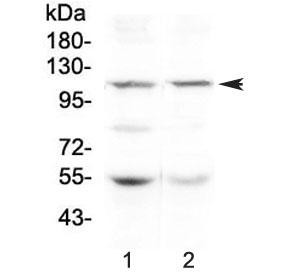Cookie preferences
This website uses cookies, which are necessary for the technical operation of the website and are always set. Other cookies, which increase the comfort when using this website, are used for direct advertising or to facilitate interaction with other websites and social networks, are only set with your consent.
Configuration
Technically required
These cookies are necessary for the basic functions of the shop.
"Allow all cookies" cookie
"Decline all cookies" cookie
CSRF token
Cookie preferences
Currency change
Customer-specific caching
FACT-Finder tracking
Individual prices
Selected shop
Session
Comfort functions
These cookies are used to make the shopping experience even more appealing, for example for the recognition of the visitor.
Note
Show the facebook fanpage in the right blod sidebar
Statistics & Tracking
Affiliate program
Conversion and usertracking via Google Tag Manager
Track device being used

| Item number | Size | Datasheet | Manual | SDS | Delivery time | Quantity | Price |
|---|---|---|---|---|---|---|---|
| NSJ-RQ4203 | 100 µg | - | - |
3 - 10 business days* |
772.00€
|
If you have any questions, please use our Contact Form.
You can also order by e-mail: info@biomol.com
Larger quantity required? Request bulk
You can also order by e-mail: info@biomol.com
Larger quantity required? Request bulk
0.5mg/ml if reconstituted with 0.2ml sterile DI water. DPYD (Dihydropyrimidine Dehydrogenase),... more
Product information "Anti-DPYD"
0.5mg/ml if reconstituted with 0.2ml sterile DI water. DPYD (Dihydropyrimidine Dehydrogenase), also called DPD, is an enzyme that in humans is encoded by the DPYD gene. The protein encoded by this gene is a pyrimidine catabolic enzyme and the initial and rate-limiting factor in the pathway of uracil and thymidine catabolism. The structure of the DPYD gene contains 23 exons spanning about 950 kb. Using somatic cell hybrid strategies, the DPYD gene is mapped to the centromeric region of chromosome 1 between 1p22 and 1q21. By fluorescence in situ hybridization, the DPYD gene is mapped to 1p22. The highest level of DPD was found in monocytes followed by that in lymphocytes, granulocytes, and platelets, whereas no significant activity of DPD could be detected in erythrocytes. The activity of DPD in peripheral blood mononuclear cells was intermediate between that observed in monocytes and lymphocytes. By cDNA microarray, Western blot analysis, and luciferase reporter assay, the transcription factor LSF was identified as a positive regulator of DPYD. Protein function: Involved in pyrimidine base degradation. Catalyzes the reduction of uracil and thymine. Also involved the degradation of the chemotherapeutic drug 5-fluorouracil. [The UniProt Consortium]
| Keywords: | Anti-DPD, Anti-DPYD, Anti-DHPDHase, EC=1.3.1.2, Anti-Dihydrouracil dehydrogenase, Anti-Dihydrothymine dehydrogenase, Anti-Dihydropyrimidine dehydrogenase [NADP(+)], DPYD Antibody |
| Supplier: | NSJ Bioreagents |
| Supplier-Nr: | RQ4203 |
Properties
| Application: | WB, ELISA |
| Antibody Type: | Polyclonal |
| Conjugate: | No |
| Host: | Rabbit |
| Species reactivity: | human |
| Immunogen: | A recombinant human protein corresponding to amino acids A356-Y511 was used as the immunogen for the DPYD antibody. |
| Format: | Purified |
Database Information
| KEGG ID : | K00207 | Matching products |
| UniProt ID : | Q12882 | Matching products |
| Gene ID : | GeneID 1806 | Matching products |
Handling & Safety
| Storage: | +4°C |
| Shipping: | +4°C (International: +4°C) |
Caution
Our products are for laboratory research use only: Not for administration to humans!
Our products are for laboratory research use only: Not for administration to humans!
Information about the product reference will follow.
more
You will get a certificate here
Viewed





